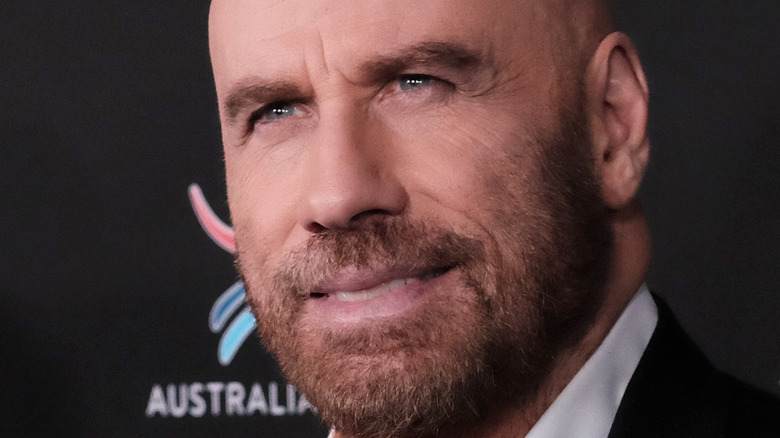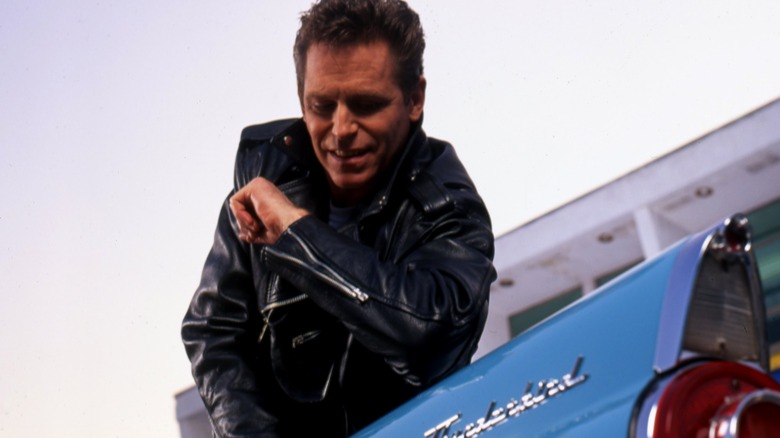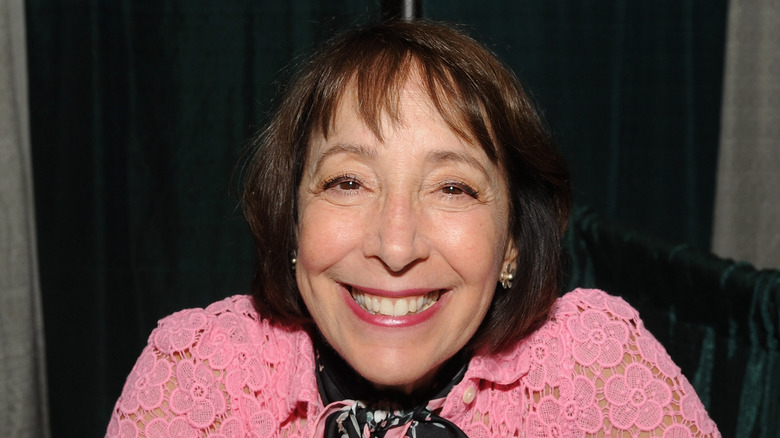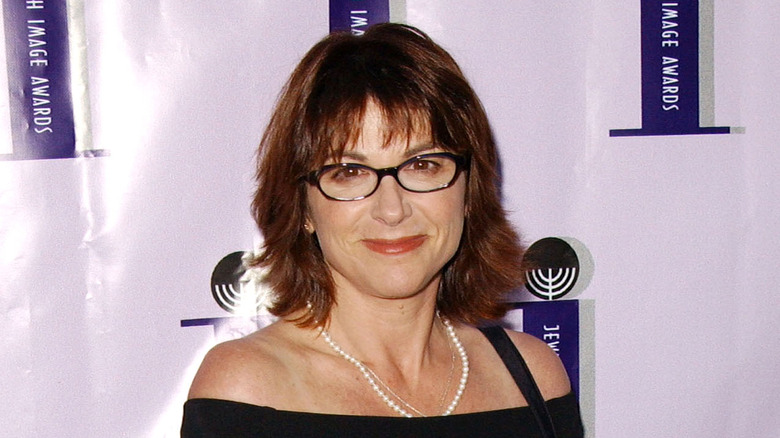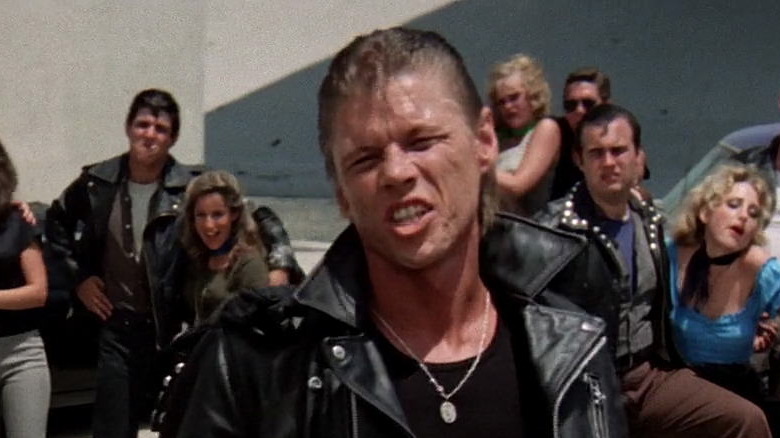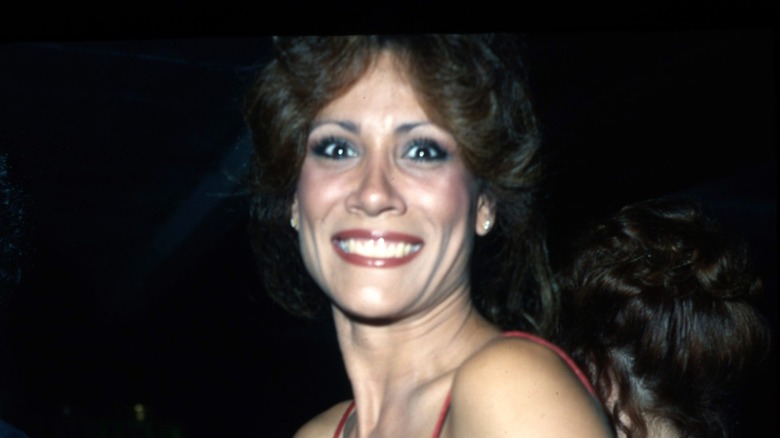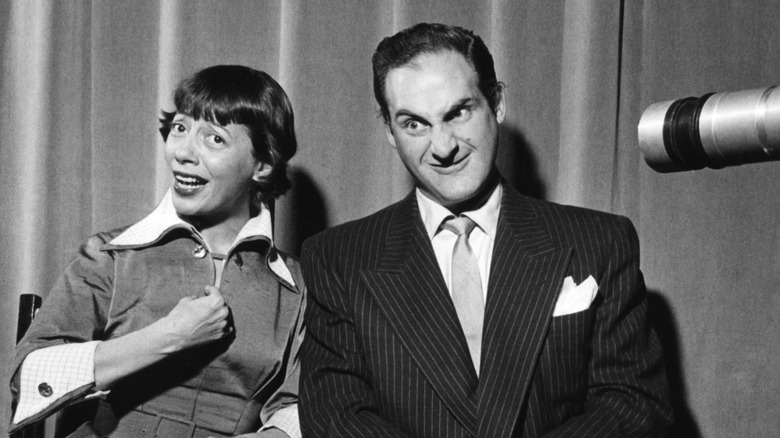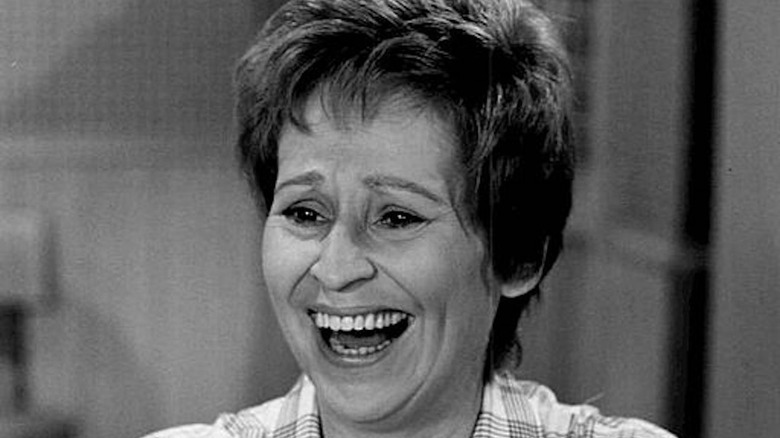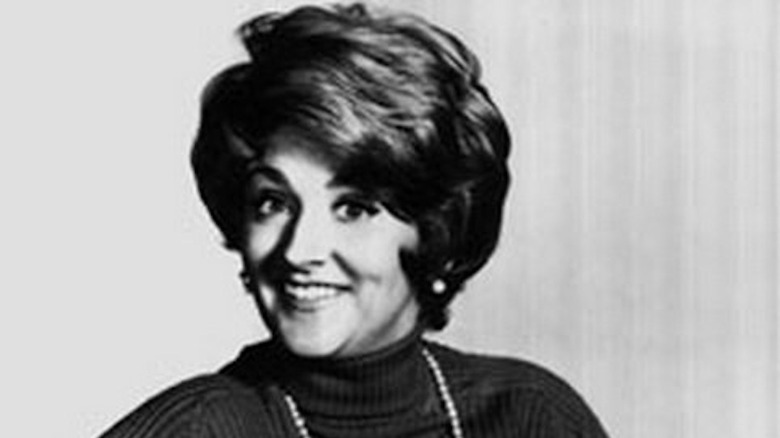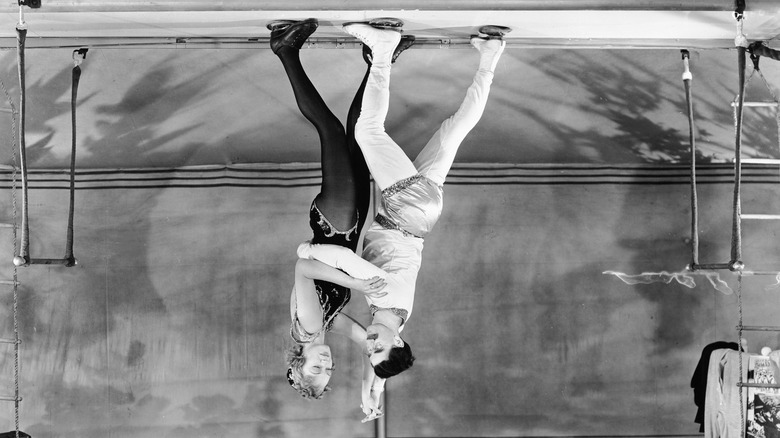Tragic Details About The Cast Of Grease
"Grease" has led a charmed existence in pop culture, but it was hardly guaranteed a long and happy legacy. It has humble origins as a stage musical that acted as a reversal and satire on 1950s teen movies (per the St. Louis Post-Dispatch). After initial performances in Chicago in a raunchy, more dialogue-heavy form, it was sanitized for Broadway, according to the Chicago Tribune. This was the version adapted by Paramount Pictures, and their adaptation became one of the most beloved movies of the 1970s. It's still one of the highest-grossing musicals released in the U.S. (per Forbes) and has enjoyed several successful rereleases.
But if time has been good to "Grease," it hasn't always been so good to the people who made the film. Enough illnesses, accidents, and death have befallen the cast and crew that "Grease" has picked up a reputation as a cursed movie (per the Daily Mirror). Of course, any studio movie takes a large number of people to make it, and given enough time, some will have storms to weather, so this "curse" may have more to do with statistics than the supernatural. Still, many "Grease" cast members have come to know tragedy.
John Travolta lost a son and wife
The 1970s were good to John Travolta. "Saturday Night Fever" and "Grease" made an international movie star of him. That star began to dip in the 1980s, but his Oscar-nominated turn in "Pulp Fiction" brought him back to the top, as Travolta himself acknowledged on "Inside the Actor's Studio." That was in the '90s, the same decade that brought Travolta his wife, actress Kelly Preston, and his first child, Jett.
Jett experienced chronic health issues. He had Kawasaki disease as a young child, a condition that inflames the arteries, as well as asthma and episodic seizures. His illnesses didn't impair Jett from traveling with his family to film locations and vacation properties, and fatherhood agreed with Travolta. "I can't imagine what life would be like without Jett," he told People in 1994. But in 2009, while vacationing in the Bahamas, Jett had a seizure and hit his head on the bathtub, resulting in his death. He was only 16. Paramedics allegedly took advantage of his death to attempt extortion against Travolta, but after a mistrial, Travolta dropped the charges (per the The Telegraph).
Nine years later, Kelly Preston was diagnosed with breast cancer. According to People, she chose to keep her diagnosis private while she sought treatment. Travolta stood by her and continued to inject spontaneous acts of romance into their marriage. But it was Travolta who announced that Preston had died of her cancer in 2020 via his Instagram.
Olivia Newton-John's long battle with cancer
1992 was a brutal year for Olivia Newton-John. Her father, Brinley, died of cancer in the summer of that year. Only weeks after his passing, Newton-John learned that she had cancer herself in her right breast. In her case, regular screenings caught it early, and within 24 hours of the diagnosis, she underwent a partial mastectomy (per People). It seemed a successful operation, and the doctors gave her a positive prognosis. Newton-John had been reluctant to discuss her illness publicly, preferring to focus on her recovery. When the cancer returned in 2013, she chose not to say anything at all. This second bout would only come to light when a third occurrence of cancer in 2017 metastasized. "I thought, 'it's my life' and just decided to keep it to myself," she explained to Australia's "Sunday Night" (via Canadian Cancer Survivor Network).
Though the cancer had reached Stage IV, Newton-John was optimistic for her future while remaining realistic. "We know we're gonna die at some point and we don't know when it is," she told "60 Minutes Australia" (via People). "When you're given a ... scary honest diagnosis, you're suddenly given a possibility of a time limit." Newton-John underwent conventional treatment and used cannabis oil for the pain. She rejected the common description of a "battle" with cancer and refused to look at statistics on the logic that they could create a self-fulfilling prophecy. But on August 8, 2022, Newton-John died from breast cancer at 73 (per CNN).
Jeff Conaway's experiences with addiction
He became famous through his comic roles "Grease" and "Taxi," but by the 2000s, audiences were seeing Jeff Conaway in a far more serious role: as himself on "Celebrity Rehab with Dr. Drew." A drug user since the 1960s, Conaway developed addictions to cocaine, alcohol, and prescription drugs initially given for crippling back pain (via the Los Angeles Times).
Conaway experienced pain of another kind going back to childhood. In an interview with SanDiego.com, he claimed to have been bullied and sexually abused as a child. He followed his parents into acting and first made a name for himself in the stage production of "Grease." But according to friends and relatives interviewed for Reelz's "Autopsy," it was while starring in "Grease" that Conaway first injured his back. The nature of his work only exacerbated the injury over the years. Conaway initially used his prescribed medication properly, but things eventually slipped beyond his control.
Stints in rehab and five back surgeries seemed to put Conaway on the road to recovery (per ET). "He was trying so hard to get clean and sober," his manager told AP (via ABC News). "If it hadn't been for his back pain, I think he would have been able to do it." But in 2011, Conaway was placed in a medically-induced coma due to pneumonia and sepsis, possibly a complication of opiates (per CNN). After 17 days, his family took him off life support.
If you or anyone you know is struggling with addiction issues, help is available. Visit the Substance Abuse and Mental Health Services Administration website or contact SAMHSA's National Helpline at 1-800-662-HELP (4357).
Didi Conn struggled to care for her son
When Didi Conn's adopted son Danny was two, he began exhibiting a heightened sensitivity to sound. "At the slightest provocation — telephone ring, doorbell, a blow dryer, blender — he would begin to scream, hold his ears, and throw himself down on the ground," Conn herself wrote for CNN in 2009. Her pediatrician assured her that it wasn't anything more than the "terrible 2s," but Danny's behavior worsened until he had up to three episodes a night. Eventually, another pediatrician determined that he was on the autism spectrum.
The diagnosis came in 1994 when understanding of autism was just beginning to appreciate its complexities (per The Conversation). With knowledge of the condition and its management limited, Conn was at a loss for how to care for her son. "I became the Queen of Denial," she wrote for CNN, describing her tendencies to assume guilt, shrink away from Danny's true needs, and give up work to act overprotective of him. But with help from doctors, teachers, and therapists, Conn found ways to engage with her son and help him thrive. The experience of raising an autistic child led Conn to develop a pilot for a children's series, "Didi Lightful," that would be the first of its kind to have a featured autistic character. The pilot was not picked up, but it was later released as a short film (via YouTube).
Dinah Manoff lost her son in a car crash
Dinah Manoff's son, Dashiell Mortell, seemed keen to follow his mother into acting. Per the Kitsap Sun, he participated in theatrical productions at Bainbridge High School and Bainbridge Performing Arts (BPA), occasionally under the direction of his mother. His turn as a greaser in a 2012 production of "The Outsiders" brought him a rave review from BPA's executive director, and the young man was beloved in the Bainbridge Island community.
Mortell enrolled in Washington State University after high school. According to WSU, he was a sociology major but still participated in the performing arts program. After the Christmas holidays, Mortell and four other students were on the road back to WSU in 2017. Their car was driving fast on roads recently hit by snowfall, and there was a wreck on the interstate. Mortell's group collided with another vehicle that was slowing down because of the wreck, and a truck collided with them. In the nine-car pile-up that resulted, Mortell was crushed by the truck hitting the roof of his car.
Manoff was devastated. Speaking to Bainbridge Island, she said that after the accident, she only felt comfortable with people who had their own suffering. She found relief in teaching acting and improv to women in prison.
Dennis Cleveland Stewart was lost in the AIDS crisis
According to photographer Peter J. Robinson Jr. (via The AIDS Memorial's Instagram), Dennis Cleveland Stewart was an "out" actor in New York City, but he may not have been so open in Hollywood. Ironically, Stewart found New York an intimidating place to work. He first came to prominence with moviegoers as a featured dancer in "Sgt. Pepper's Lonely Hearts Club Band" in 1978, then as Leo "Crater Face" Balmudo in "Grease" that same year. He would reprise the part in "Grease 2." Being typecast in greaser-type roles was among his complaints with the New York acting scene. Robinson wrote that Stewart regularly dressed like Balmudo and never saw the connection.
Fifteen years after his work in "Grease," Stewart contracted HIV (via the Daily Mirror). Naturally shy, he confided in friends like Robinson about his condition but kept mum about his family and relationships and exercised caution with potential partners. He left New York for Los Angeles near the end of 1993, where he died of complications from AIDS the following April.
Annette Charles died from cancer
After her turn as bad girl Cha-Cha DiGregorio in "Grease," Annette Charles made sporadic appearances in film and TV while maintaining a stage career. In 2002, she became a popular lecturer at California State University, Northridge in the chicano/a studies department According to the Daily Sundial, she found her acting background useful in teaching students and was described by her colleagues as "driven." She could also be tough on her students. "She drilled them and drilled them," Professor Renee Moreno recalled to the outlet. "Critiqued them and gave them harsh words of advice. But everything came from her desire to make them better, and they responded."
After several years as a teacher at the university, Charles began helping prepare doctoral students through the McNair Scholars Program. She was well into her academic career when she entered the hospital for pneumonia (per The Washington Post). While there, Charles — who was not a smoker — was diagnosed with lung cancer. The disease progressed rapidly, giving family and friends no time to prepare for the worst. And the worst came — after only a month in the hospital, Charles died at 63. "I cannot imagine life without Annette," Moreno told the Daily Sundial. "My life is forever changed in knowing her, and the world is a little less without her."
Sid Caesar's experiences with alcoholism
"Grease" made household names out of several of its stars, but Sid Caesar didn't need any such boost. He was already a renowned actor, the idol of funnymen for his work in "Your Show of Shows" on television. But the scale of his fame, and its abrupt reversal after his shows ended, took a heavy toll. Speaking to UPI in 1980, Caesar described himself as wealthy but broken, surrounded by hangers-on and untrusting even of longtime friends and family.
"Caesar felt it had all come too fast, was too easy, and that he didn't deserve the acclaim," wrote Gerald Nachman in "Seriously Funny: The Rebel Comedians of the 1950s and 1960s." He turned to the bottle. Looking for help from doctors and psychiatrists, Caesar had the misfortune to fall into the hands of unscrupulous enablers. Prescribed drugs for his mental health, he developed a dependence on them that combined dangerously with alcohol. "From 1962 to 1978 I was asleep on my feet," he told UPI. "The insidious part is you don't know it ... and my doctors and the headshrinkers knew it."
Caesar caught a break when his one-time protege Mel Brooks cast him in 1976's "Silent Movie," but his health continued to decline. After collapsing on stage two years later, a doctor hospitalized Caesar and oversaw his withdrawal from all his prescriptions and alcohol. After six months, he said he was more well-adjusted than at any other time in his life. He eventually died in 2014 after coming down with an illness (per Variety).
If you or anyone you know is struggling with addiction issues, help is available. Visit the Substance Abuse and Mental Health Services Administration website or contact SAMHSA's National Helpline at 1-800-662-HELP (4357).
Alice Ghostley's end-of-life struggles
Alice Ghostley had a full and rewarding career before and after "Grease," though her most notable work was outside of film. A dropout from the University of Oklahoma, Ghostley was, by her own assessment, more suited to be a character actor than an ingénue. "My nose was too long. I had crooked teeth. I wasn't blond," she once said to The Globe (via ABC News). "But I also knew I'd find a way."
Her work on the New York stage brought her early notoriety for singing "Boston Beguine" in Leonard Sillman's "New Faces of 1952," a song that would remain identified with her throughout her career. Elsewhere, she won a Tony for her work in "The Sign in Sidney Brustein's Window." On television, she was best known to audiences as Esmerelda in "Bewitched" and Bernice on "Designing Women." She and her longtime friend Kaye Ballard also appeared together with Julie Andrews in the TV production of Rodgers and Hammerstein's "Cinderella" (per The Seattle Times).
Ghostley seemed to lead a happy life, too, admired by peers like Ballard and happily married to actor Felice Orlandi for over 50 years (per Variety). Sadly, Ghostley could not enjoy good health in old age. A series of strokes hurt her, and she endured a long experience with colon cancer. It was the combination of these conditions that led to her death at 81.
Fannie Flagg's dyslexia almost cost her a career
More than an actress, Fannie Flagg wanted to be a writer. It was her ambition from the age of 6, she told CNN in 1999. But there was a problem: she couldn't spell. "I remember my mother tried to help me with the third grade spelling bee, but I just couldn't remember the words and would burst into tears," said Flagg to AL.com. To compensate, she became a diligent listener and an adept speaker, better with the spoken word than the written word.
Still, Flagg wanted to write. On the comedy show "Candid Camera," she showed a flair for humor in storytelling. She would pitch her ideas verbally, trusting the typist to get them onto paper. When she finally dared to take up a pen herself in a short story contest, she wrote in the voice of an 11-year-old girl to justify her spelling errors and took first prize. But humorous guises were the only way Flagg could reconcile with her limitations until a teacher reached out to offer a diagnosis: dyslexia.
Flagg had never heard of dyslexia before and didn't want to go public with the fact. But a friend working in education convinced her that it would benefit children with the disorder who needed successful role models. Flagg has since spoken about working with dyslexia on many occasions, volunteered with The Lab School in Washington, D.C., and indirectly addressed overcoming such adversity in her novels.
Eve Arden mourned for her husband
Eve Arden enjoyed a rare occurrence in Hollywood: a happy, long-lasting marriage. She and actor Brooks West were together for 35 years (via the Desert Sun). They toured America with various stageplays, with Arden inclined toward humor. Later, they toured Europe with their four children in tow. When Arden decided to write an autobiography, West lent her a hand: he suggested the title ("The Three Phases of Eve") and gave feedback. The fact that he wouldn't let her drive on long car trips also gave Arden a designated time to write.
The three phases of West's suggested title concerned Arden's acting career, her time as a mother, and her and West's European sojourn. But a fourth phase was added when, while preparing for a role in "The Purple Rose of Cairo" in New York, she learned that West had experienced a stroke that put him into a coma. He died early in 1984, only 67 years old.
Arden was disconsolate. "He had loved life so much and had always been in the best of health," she told the Desert Sun. For months after, Arden couldn't face that her husband was gone, and in that time, she lost the will to keep working on her book. She would eventually complete "The Three Phases of Eve" and act in a few small TV roles, but her career largely ended after West's death. "Grease 2" was her final film.
